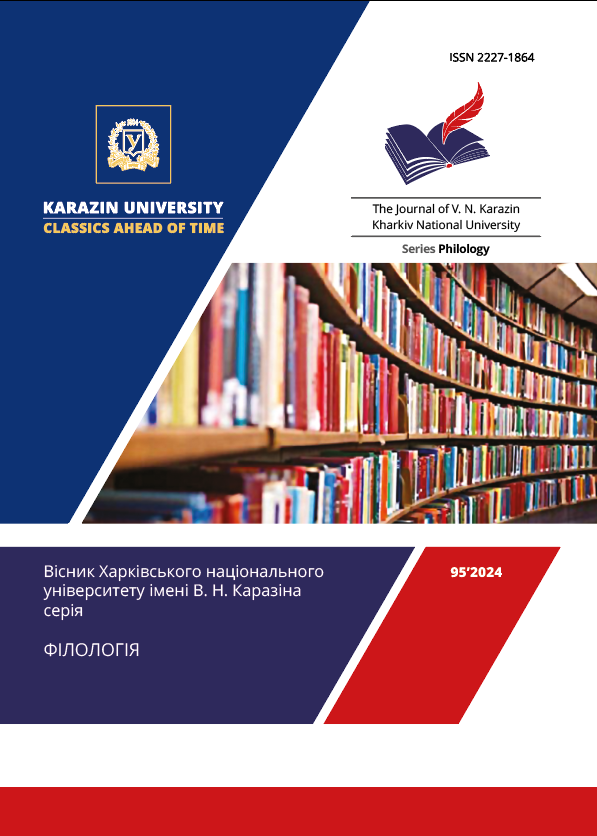Possible Interrelations of the Proto-slavic Concept of “Fool” with Initiation Rites and Magic Fairy Tales
Abstract
In a series of publications, the second of which is this article, the author attempts to explore the phenomenon of conceptual memory as a type of collective memory and cultural memory, as well as a way of accumulating significant meanings.
The theory of conceptual memory resonates with the linguistic theory of etymological (or cultural) memory of the words, which investigates the connections between the etymological and historical projections of a linguistic unit and its modern semantics. It seems that such connections can be observed between the original and ancient meanings of words and the concepts that they subsequently verbalize, tracing how language and culture preserve universal and unique meanings.
To illustrate the theory of conceptual memory, the article demonstrates the interconnections of the hypothetical Proto-Slavic concept of “fool”, reconstructed in a previous work, with the initiation ritual and fairy tales. According to our hypothesis, the ancient concept of “fool” reflects the features of the initiation ritual and denotes the initiate himself. This is evidenced by the overlap of core and peripheral conceptual meanings with key moments of the initiation rite. Over time, the ritual is captured in initiation myths and other cultural texts, such as fairy tales.
In new social realities, the tale gradually loses the understanding of its magical meanings of the ritual and presents a simplified and reinterpreted narrative of initiation, in which the concept of “fool” correlates primarily with the corresponding character. The conceptual meanings gradually take the form of a set of traits of the main fairy-tale hero, and the “fairy-tale background,” which reflects the features of the original ritual, ceases to be perceived as related to the concept.
Downloads
References
boys die after manhood ceremony in South Africa. URL: https://ua.korrespondent.net/world/3389056-pislia-tseremonii-posviaty-v-choloviky-v-par-pomerly-26-khlopchykiv (date of application: 10.06.2024) [in Ukranian].
Apresyan, Yu. D. (1995). Selected works (Volume II). Integral description of the language and systematic lexicography. Moscow: Languages of Russian Culture [in Russian].
Balushok, V. G. (1993). Initiations of the ancient Slavs (an attempt at reconstruction). Ethnographic Review, 4, 57–66 URL: https://esu.com.ua/article-12303 (date of application: 08.06.2024) [in Russian].
Balushok, V. H. (1998). Rites of initiation of Ukrainians and ancient Slavs. Lviv–New York [in Ukranian].
Balushok, V. H. (2011). Initiations. Encyclopedia of Modern Ukraine. Kyiv: Institute of Encyclopaedic Research of the National Academy of Sciences of Ukraine [in Ukranian].
Danylenko, L. (2020). Ukrainian confusion and its reception in Slavic languages (on the origin of the phraseology to confuse). Slavia Orientalis. T. LXIX, NR 2, 319–335. DOI: https://doi.org/10.24425/slo.2020.133664 [in Ukranian].
Danylenko, L. I. (2017). Cultural memory of the word: a textbook. Kyiv: Dmytro Burago Publishing House [in Czech].
Davydiuk, V. F. (2005). Primitive mythology of Ukrainian folklore. Lutsk: Volyn regional printing house [in Ukranian].
Fraser, D. D. (1983). The Golden Branch: A Study of Magic and Religion. Moscow: Political Literature Publishing House [in Russian].
Geishtor, A. (2024). Slavic mythology. Kyiv: Clio [in Ukranian].
Heisinga, J. (1994). Homo Ludens. Kyiv: Basics [in Ukranian].
Hubernachuk, S. S. (2010). The antiquity of the Ukrainian language. Kyiv: Fourth Wave [in Ukranian].
Koleva-Zlateva, J. (2013). Etymological memory as an auxiliary criterion in etymological experience (Notes on the semantic reconstruction of the named right side dating back to indo-e. *deks). Slavika – Slavika, XLII, 149–163. Debrecen [in Russian].
Lyubimova, S. (2017). Etymological Memory of a Word in Designating Sociocultural Stereotype. East European Journal of Psycholinguistics. 4 (1), 140–149. DOI: https://doi.org/10.5281/zenodo.821718 [in English].
Masliy, E. V. (2005). Some typological features of the image of Holy fool and their realisation in Russian folk tales. Visnyk of V. N. Karazin Kharkiv National University. Series: Philology, issue 46, 116–120 [in Russian].
Masliy, O. V. (2022). Reconstruction of the figurative component and structure of the concept of fool according to the Proto-Slavic vocabulary. Visnyk of V. N. Karazin Kharkiv National University. Series: Philology, issue 91, 86–91 DOI: https://doi.org/10.26565/2227-1864-2022-91 [in Ukranian].
Nevermann, H. (1933). Masken und Geheimbünde in Mélanésien. Berlin [in German].
Propp, V. Ya. (1928). Morphology of the fairy tale. Leningrad: Academia [in Russian].
Propp, V. Ya. (1986). Historical roots of the magic fairy tale. Leningrad: Leningrad University Publishing House [in Russian].
Shapar, V. B. (2007). Initiation. Modern explanatory psychological dictionary. Kharkiv: Flag [in Ukranian].
Sizonov, D. Y. (2022). Phraseologism and cultural memory: system of correlations in the media. Culture of the word, 96, 82–92. DOI: https://doi.org/10.37919/0201-419X.2022.96.6 [in Ukranian].
Telia, V. N. (1996). Russian phraseology. Semantic, pragmatic and linguocultural aspects. Moscow: Languages of Russian Culture [in Russian].
Temchenko, A. I. (2015). Traditional mantic practices: archaic sign system. Cherkasy: IntroligaTOР [in Ukranian].
Trubachev, O. N. (edit.) (1978). Etymological Dictionary of Slavic Languages (Proto-Slavic lexical fund). (Issue 5 (*dělo – *dьržьlь)). Moscow: Science [in Russian].
Veremchuk, E. (2020). Etymological motivation of verbalisers of the English ethical category duty / obligation. Lviv Philological Journal, 8, P. 34–39. DOI: https://doi.org/10.32447/2663-340X-2020-8.5 [in Ukranian].
Webster, H. (1908). Primitive secret societies. New York [in English].
Yakovleva, E. S. (1999). On the notion of ‘cultural memory’ as applied to the semantics of a word. Questions of linguistics, 3, 92–107 [in Russian].




